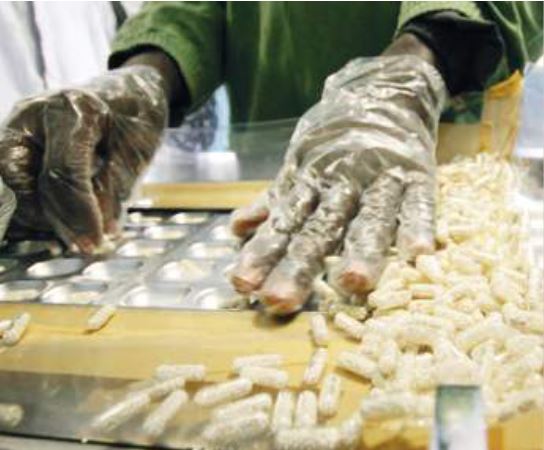Kenya has launched its first-ever plan to monitor consumption of drugs such as antibiotics and antifungals.
The move is informed by the growing trend of some drugs becoming ineffective against conditions they are expected to treat.
The Kenya Surveillance System for Antimicrobial Consumption (KESAC) was launched in Nairobi on Thursday by the drugs regulator, the Pharmacy and Poisons Board.
PPB boss Dr Fred Siyoi said until now, Kenya has lacked a comprehensive, national system to monitor antimicrobial consumption.
He said effective surveillance is crucial to understanding patterns of consumption and linking them to resistance trends.
“If left unchecked, antimicrobial resistance has the potential to reverse decades of medical progress, leaving us vulnerable to infections that were once easily treatable,” he said.
Antimicrobial resistance (AMR) occurs when bacteria, viruses, fungi, and parasites evolve and become resistant to the drugs designed to kill them.
This makes common infections, such as pneumonia, tuberculosis, and malaria, harder to treat, leading to longer illnesses, higher medical costs, and increased mortality.
In Kenya in 2019, there were 8,500 deaths attributable to AMR, according to a survey by the Institute for Health Metrics and Evaluation, based at the University of Washington.
Siyoi said the new system would enable PPB to collect, analyze, and interpret data on antimicrobial consumption across the entire pharmaceutical supply chain, from importers and manufacturers to pharmacies and healthcare facilities.
“Kenya will gain a clearer picture of antimicrobial consumption trends, enabling us to target interventions more effectively, reduce irrational antimicrobial use, and ultimately protect the health of our population,” he said when he launched the online platform.
PPB regulatory officer Dr Karim Wanga said the main drivers of AMR include indiscriminate use, misuse and overuse in humans, animals and the environment.
Poor disposal practices and the presence of antimicrobials in the environment also contribute to resistance.
“Global deaths from drug-resistant infections are projected to increase from current 700,000 to 10 million annually,” he said.
He said the next step for Kesac is training and sensitisation of local manufacturers, importers, distributors, and community pharmacies on the system.
“Kesac will also be rolled out at different levels of the supply chain. This will require significant resources,” he said.
Dr Rosemary Njogu, a PPB regulatory officer, said data from the system will equip healthcare professionals and policymakers with consumption trends on antimicrobial drug use.
“This will Inform AMR national action plans,” she said.
In September, global leaders at the 79th UN General Assembly approved a political declaration on Antimicrobial Resistance, committing to a clear set of targets and actions.
It included reducing the estimated 4.95 million human deaths associated with bacterial AMR annually by 10 per cent by 2030.
Political declarations are not binding but they, nonetheless, carry significance.
The declaration also called for sustainable national financing and $100 million in catalytic funding. This is to help achieve a target of at least 60 per cent of countries having funded national action plans on AMR by 2030.
This goal is to be reached through, for example, diversifying funding sources and securing more contributors to the Antimicrobial Resistance Multi-Partner Trust Fund.
The Food and Agriculture Organization of the United Nations, the United Nations Environment Programme, the World Health Organisation and the World Organisation for Animal Health, known as the Quadripartite, said they welcome the declaration.
“Evidence is mounting that the environment plays a significant role in the development, spread and transmission of AMR, including transmission between humans, and animals to humans," said Inger Andersen, executive director of the Gigiri-based Unep.
"That is why if we’re to reduce the burden of AMR and its risks, the environment must be part of the solution."
"Today’s declaration recognises this need, and Unep will continue to be at the forefront of efforts to reduce the burden of AMR on societies and tackle the triple planetary crisis," she said.
On human health, the declaration sets a more ambitious target. This is that at least 70 per cent of antibiotics used for human health globally should belong to the WHO Access group antibiotics, with relatively minimal side effects and lower potential to cause AMR.


